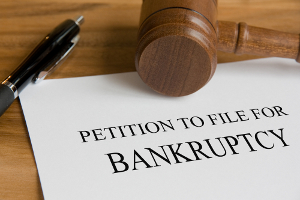 In Chapter 7 bankruptcy cases, debtors can keep any property that can be exempted from the bankruptcy estate. Debtors file a list of assets with the court. Exemptions are applied to the assets, and any property that can be protected by an exemption is protected from seizure by the Chapter 7 trustee. In Texas, we have very good exemptions. A very small percentage of Chapter 7 cases filed in Texas result in liquidation of the debtor’s assets. In some states, a large portion of debtors’ assets may be seized in Chapter 7 bankruptcy cases. In Texas, the most common asset that must be handed over to a Chapter 7 Trustee are tax refunds that are owed to the debtor on the date of filing but not yet received.
In Chapter 7 bankruptcy cases, debtors can keep any property that can be exempted from the bankruptcy estate. Debtors file a list of assets with the court. Exemptions are applied to the assets, and any property that can be protected by an exemption is protected from seizure by the Chapter 7 trustee. In Texas, we have very good exemptions. A very small percentage of Chapter 7 cases filed in Texas result in liquidation of the debtor’s assets. In some states, a large portion of debtors’ assets may be seized in Chapter 7 bankruptcy cases. In Texas, the most common asset that must be handed over to a Chapter 7 Trustee are tax refunds that are owed to the debtor on the date of filing but not yet received.
Texas bankruptcy filers can select either Texas exemptions or Federal exemptions. Texas exemptions are very good at protecting the home in which a debtor lives. In fact, the homestead exemption in Texas protects an unlimited amount of the value of a debtor’s homestead, as long as the property doesn’t exceed the acreage limitations. Federal exemptions, on the other hand, are very flexible and include an exemption called the Wild Card which can be used to protect all types of property.
In Chapter 13 bankruptcy cases, debtors get to keep all of their nonexempt property. The Chapter 13 trustee does not liquidate the debtor’s assets. Chapter 13 cases are funded through future payments made by the debtor. However, if the debtor wishes to sell nonexempt property before their case is confirmed, then the trustee may require that the proceeds be paid into the plan. Similarly, if the property sells for more than the value estimated in the schedules filed with the court then the trustee may require that the proceeds of the sale exceeding the estimated value be paid into the plan for the benefit of the creditors.